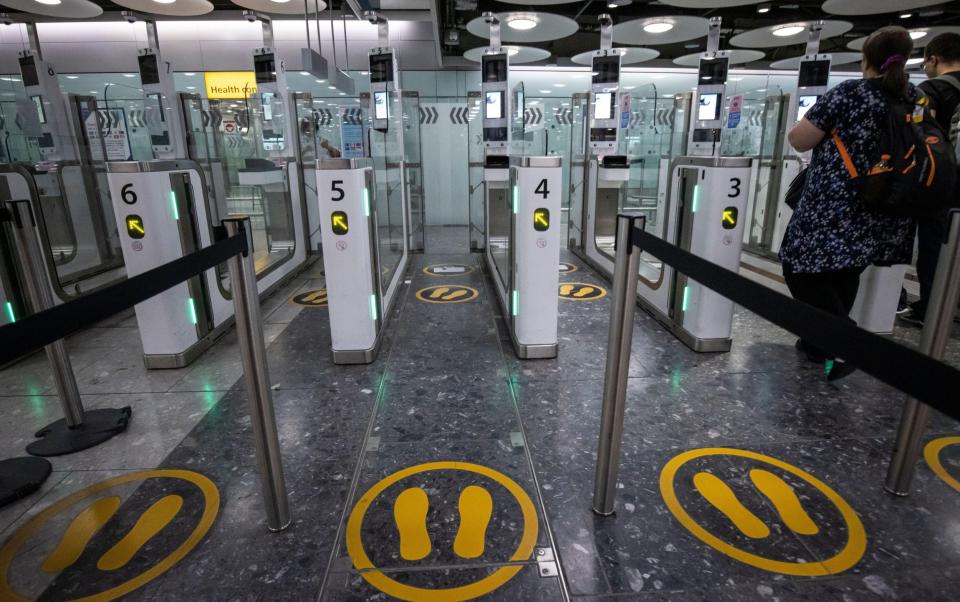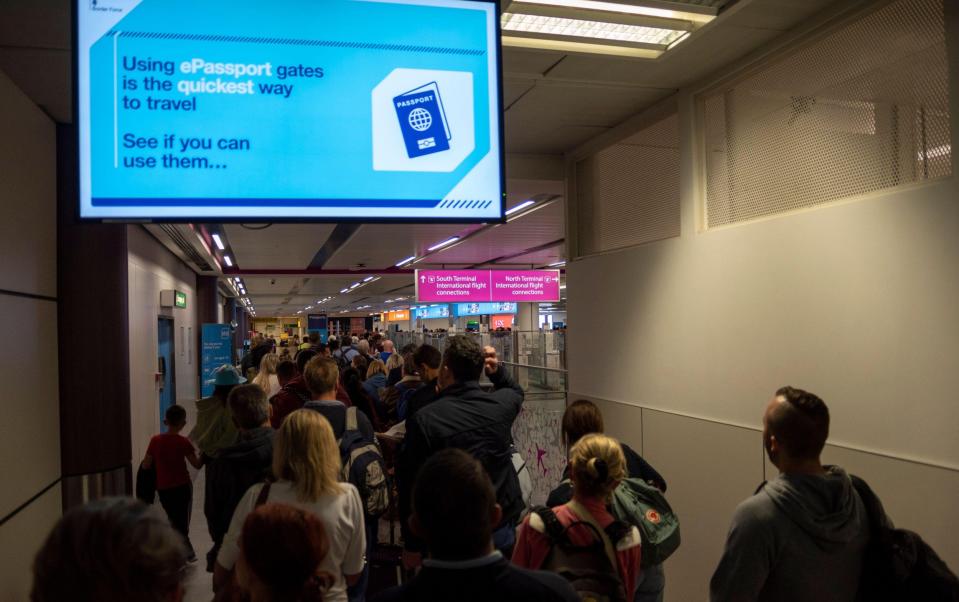This week Border Force announced plans for more “friction-free” travel thanks to a “smart border” managed by facial recognition cameras on e-gates. This means that while you’ll still need to carry your passport with you when traveling through UK airports, you won’t need to show it to officers or even passport-reading machines. While the plans promise greater convenience, they can have hidden costs that pose serious privacy threats, risks of technical malfunctions and costs for taxpayers. It is not “frictionless”.
International travel is the most liberating activity in the world. But the last 20 years have been punctuated by increasingly oppressive airport experiences, from searches to full-body scans. There are also terrible passport queues; so most of us will do anything to make things less stressful and faster.
E-gates certainly have the potential to deliver speed; but for non-British travellers, this may mean filling out online forms and scanning your passport on a smartphone; This is something that may be more difficult for older passengers and people with disabilities. What’s more, facial recognition technology is currently plagued with bugs and struggles with darker skin tones, aging, and, of course, twins. Still, the 1:1 biometric face check, which compares a passport photo with the face facing the camera, is widely accepted as a fast and secure way to verify identity.
But behind these seemingly useful e-doors is a completely new, massive infrastructure that collects our digital information. Instead of showing the paper passport to a human officer as we are all used to, the officer is now a machine and already has your passport, photos, biometric data and potentially more information in a giant database. The emergence of “smart” borders is not just a technological development; It is a shift in our privacy rights.


How intrusive this will be depends on how much data the Government decides to keep and for how long. But in theory, such e-gates open the possibility of collecting travel data and biometrics of the population throughout our lifetimes, as well as detailed records of the tens of millions of visitors to the UK each year. This database will need extremely strong technological, human, political and legal protection to ensure that it is not used securely and against individuals. But again, such protections are not mentioned in the haphazard press announcement of this major change by the Border Force.
How intrusive it is also depends on whether we can do it or not. to choose Using e-gates. Currently we can choose whether to use passport e-gates and they ask us to show our passport. But the difference with “frictionless” security is that the individual has less authority; Your passport is effectively digitally pickpocketed by high-tech cameras that scan your face and decide whether to allow you entry. Unless radically amended, the Government’s Data Protection and Digital Information Bill currently making its way through parliament will significantly weaken our data rights and pave the way for a country with far more facial recognition cameras, not just in airports but potentially everywhere.
Even if these “next generation” e-gates start on a consent basis, it is unlikely to last long. In fact, before the plans were even made public, Border Force chief executive Phil Douglas told industry bosses that the use of human passport desks would “disappear” in the next few years due to e-gates and the value of identity. The data is forwarded to the authorities. Although presented as an inevitable consequence of technological progress, human services are not naturally “disappearing” but are being taken away, along with our privacy, by the covert techno-authoritarianism that underpins our time.


For most of us, our passport is the most personal and sensitive information we have. We hide it in a drawer or safe at home; This is what we fear most from being lost or stolen. But changes like this take our passports out of our hands and further out of our control.
Combined with hundreds of millions of other people’s passports, photos, visas and biometrics in huge databases searched more than a hundred million times a year, there are huge new risks of loss, errors and even devastating attacks. Just three years ago, a hacker in Estonia, “the world’s most advanced digital society,” also known as “e-Estonia,” downloaded close to 300,000 personal identification photos after retrieving personal names and identification numbers from a government database.
Some of the risks of digitizing critical infrastructure are more mundane. During the bank holiday in May last year, a routine system upgrade to existing passport e-gates brought British airports to a halt, causing four-hour queues.
If pulling your passport out of your pocket is to be reclassified as “friction,” perhaps that’s friction we should be prepared to endure. It may be safer than the constant erosion of our privacy due to a growing database situation.